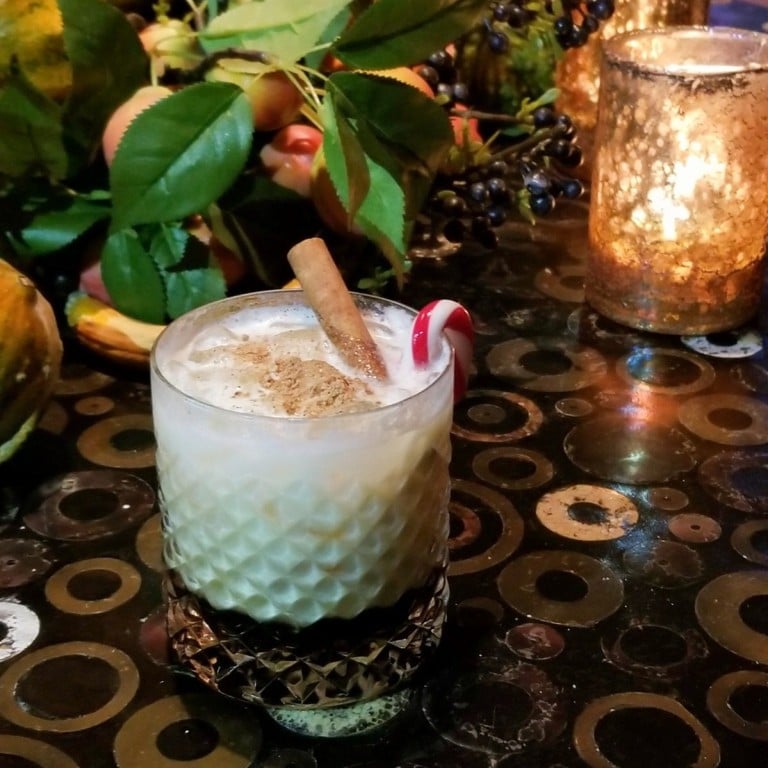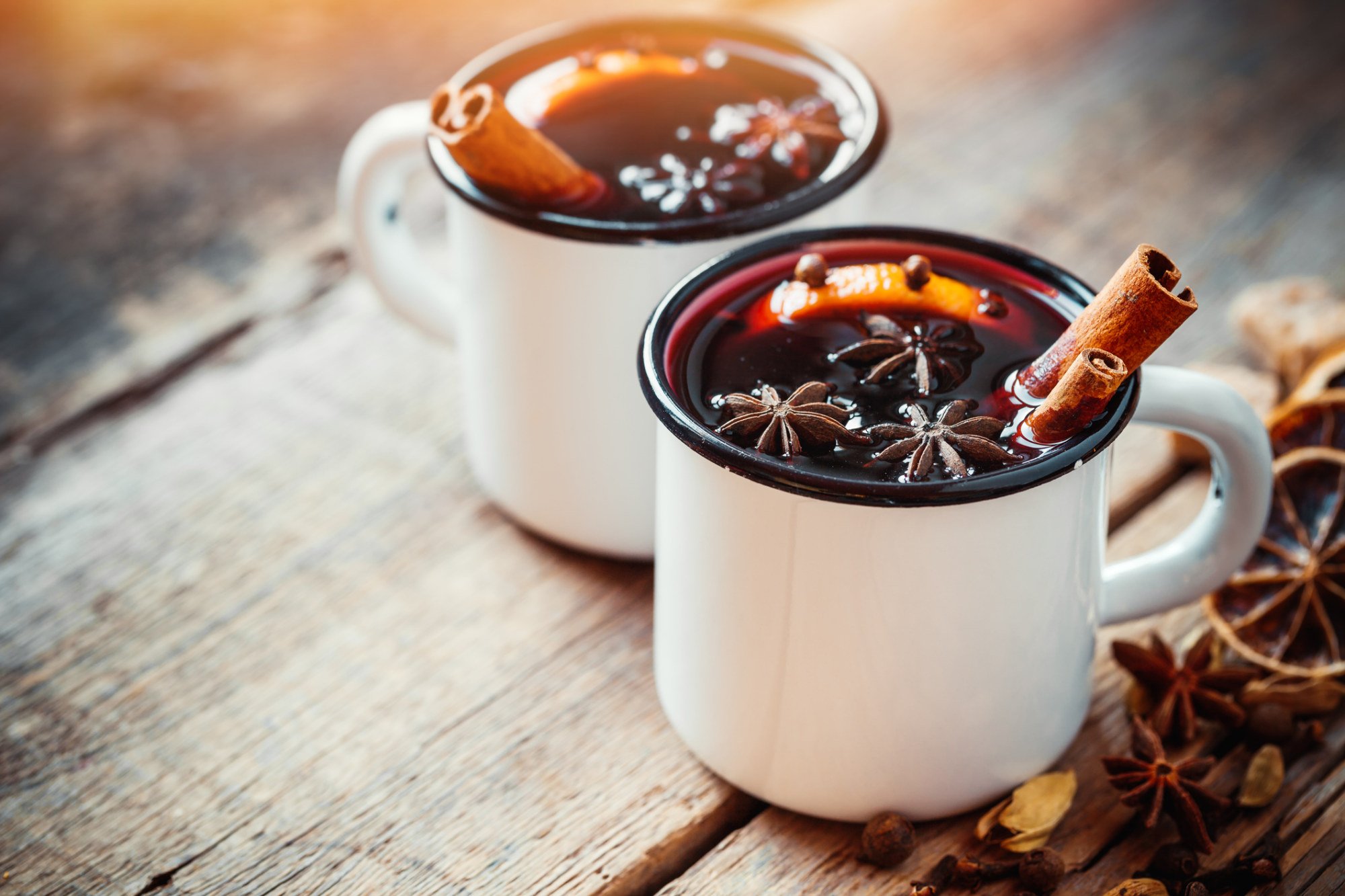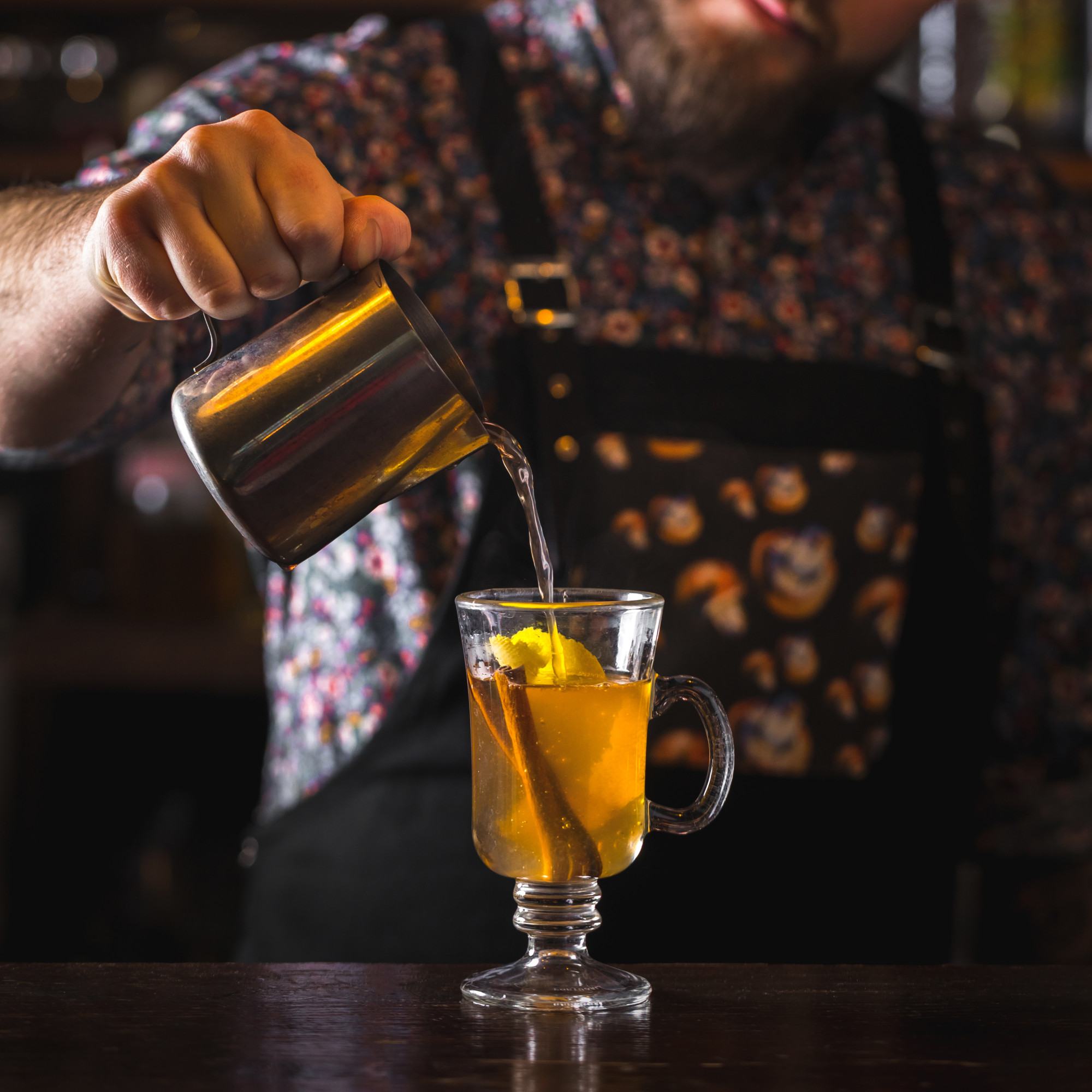
How ginger, cinnamon, cloves and nutmeg became the taste of Christmas, and how to capture those aromas in a cocktail
- The spices that give mulled wine, eggnog and hot toddies their Yuletide aroma were originally used to show off one’s wealth
- Cinnamon, nutmeg, ginger and cloves give us a sense of nostalgia, and our mulled wine syrup recipe will have your kitchen smelling like Christmas
It seems like the minute the weather turns – or whenever Starbucks deems it appropriate to start whipping out the red cups – everything becomes Christmas-flavoured. We’re talking lattes, baked goods, candles that almost smell edible.
When asked what Christmas “tastes” like, most would say cinnamon, nutmeg, ginger and perhaps a hint of orange and cloves. After all, mulled wine, hot toddies and eggnog are not typically enjoyed on a hot summer day at the beach – unless, perhaps, you’re Australian.
The explanation behind this seasonal use goes back to Victorian times, when applying spices liberally to food and drinks was equivalent to today’s caviar bump, a decadent way to show off your wealth. Spices were expensive and often rationed to use around times of major celebrations – namely holidays such as Christmas and New Year.
Here is how they found their way into our favourite holiday drinks:

Mulled wine
The joke is that mulled wine has existed for as long as there has been bad wine: always. The ancient Greeks were originals when it came to zero waste, and heated up wine that was close to spoiling with strong spices to make it as palatable as possible.
Makgeolli makeover: how Korean rice beer is shedding its ‘old man’ image
Eggnog
This originated in the 13th century, when monks in Britain made a hot drink called “posset” with ale, eggs, spices and figs. The addition of milk – another scarce resource reserved for the wealthy back in the day, came later when eggnog was served at social gatherings as a way to toast to prosperity.
Toddy
Toddy is a fermented palm sap drink. In mid-18th century India, the word referred to a “drink made of alcoholic liquor with hot water, sugar and spices”.

Today, the spices of Christmas are no longer about flaunting wealth and prosperity. It is now about the associated memories and pangs of nostalgia that make the scents and tastes so powerful.
For many in the West, this conjures up moments in front of a roaring fireplace with presents under the tree, the waft of spices coming from the kitchen as the gingerbread bakes and the grown-ups cradle a mug of mulled wine.
I didn’t have these experiences in my childhood, but I feel like I’ve lived them vicariously through Christmas feel-good films and commercials. What probably tastes more like Christmas (or winter for those who are non-denominational) for many of us Hong Kong natives are the charcoal-smoke-kissed chestnuts and yams from a street vendor by the pedestrian crossing, or the numbing Sichuan peppercorns from a bubbling hotpot.
But nothing gets in the way of me and a steaming cup of mulled wine on a “chilly” 14-degree-Celsius day …
Here’s my recipe for making your own mulled wine syrup (just add wine when needed):

Mulled wine syrup
-
850ml water
-
450g coconut sugar or brown sugar
-
1 orange (use the orange peel – be sure to remove the white pith, then cut the remaining orange flesh into chunks)
-
8 cloves
-
2 cinnamon sticks
-
2 bay leaves
-
2 star anise
-
½ tsp grated nutmeg
-
1 tbsp vanilla extract (or 1 vanilla pod, split)
1 Put all the ingredients together in a large pan on the stove. Over a medium heat, bring the mixture to a boil, stirring regularly. Reduce to a high simmer for 20 minutes or until the syrup reaches your desired consistency, stirring every few minutes. As the mixture is cooking, I like to push down on the oranges with a spoon to release as much flavour as possible into the syrup.
2 Allow the mixture to cool slightly before straining it through a sieve. Pour the sieved syrup into a sterilised airtight bottle.
3 To make the mulled wine, heat 750ml of red wine with 100ml of the mulled syrup together in a saucepan on a low heat. Keep the mixture on the heat just long enough for it to warm up (don’t let it boil). Serve in glasses with slices of orange and star anise.

